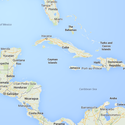-
About
- About Listly
- Community & Support
- Howto
- Chrome Extension
- Bookmarklet
- WordPress Plugin
- Listly Premium
- Privacy
- Terms
- DMCA Copyright
- © 2010-2025 Boomy Labs

 List Builder
List Builder
Listly by List Builder
Top Things to Do in Kobe, Japan, from a Cruise Ship - Feel free to add, vote or provide feedback to the list
Mount Maya is a 698.6 m (2,292 ft) high mountain in Kobe, Hyōgo Prefecture, Japan. This mountain is one of the major peaks of the Rokkō Mountains, and is the most popular peak for visitors on the West-Rokkō Mountains. Mount Maya is one of the two centers in Rokko Mountains for tourists.
The Nunobiki Herb Garden is a herb garden located on Mount Rokkō above Kobe, Japan. It is open daily; an admission fee is charged.
There is no single mountain or peak called "Rokkō." The highest peak of the mountains is called Rokkōsan-Saikōhō , literally, the highest peak in Rokkō Mountains. The mountains spread from Sumaura Kōen Park in the west end of Kobe, to Takarazuka, and the length of the mountains ranges is about 56 km.
An observation deck , observation platform or viewing platform is an elevated sightseeing platform usually situated upon a tall architectural structure such as a skyscraper or observation tower. Fitted with railings or fencing for safety, observation decks are sometimes enclosed from weather, as many skyscraper decks, and may include coin operated telescopes for viewing distant features.
Tourists can visit the Kobe Tower from 9 in the morning to 8 in the evening until August. The hours of the port tower in the month of December are extended to 9 pm. However in the month of February when the place experiences its winters, the closing time is narrowed to 6 in the evening.
There is a white sandy beach in this ward, which attracts tourists to the Kansai region for sun bathing and popular events during the summer season. The same beach has appeared in the classic epics Genji monogatari, Heike monogatari, and Ise monogatari.
Nunobiki Falls is a set of waterfalls near downtown Kobe, Japan, with an important significance in Japanese literature and Japanese art. In Japan, Nunobiki is considered one of the greatest "divine falls" together with Kegon Falls and Nachi Falls.
Hakutsuru Fine Art Museum opened in 1934 in Kobe, Hyōgo Prefecture, Japan to display the collection of Kanō Jihei, seventh head of the Hakutsu Sake Brewing Company . As such it was one of the first private museums in Japan. The collection of some 1450 items includes two National Treasures and twenty-two Important Cultural Properties.
The Rokkō Alpine Botanical Garden is a botanical garden located on Mount Rokkō, Kobe, Japan. It is open daily in the warmer months, except some Thursdays; an admission fee is charged. The garden was established in 1933 at an altitude of 865 meters near the peak of Mount Rokkō.
Meriken Park is a waterfront park located in the port city of Kobe, Hyōgo Prefecture, Japan. The park features the Kobe Port Tower, Kobe Maritime Museum, and a memorial to victims of the Great Hanshin earthquake.
Kitano-chō or Kitano Ijinkan is a historical district in Kobe, Hyogo Prefecture, Japan, which contains a number of foreign residences from the late Meiji and early Taishō eras of Japanese history. While the term ijinkan can refer to any foreign residence of this period in Japan, it usually refers to those of Kitano given the number and high concentration of those that remain.
Kobe Chinatown ( Nankin-machi " Nanjing town") ( Japanese: 南京町; Simplified Chinese: 南京町) in Kobe, Japan is one of only three designated Chinatowns in Japan. It is located south of Motomachi station adjacent to the Daimaru Department Store and is a major tourist attraction.
The Kobe Municipal Arboretum , also known as the Kobe City Forest Botanical Garden, is a 142.6- hectare botanical garden and arboretum located near Mount Maya at 4-1 Nakaichiri-yama, Shimotanigami, Yammada-cho, Kita-ku, Kobe, Japan. It is operated by the city and open daily except Wednesdays; an admission fee is charged.
The park was created in 1967 on the general model of the Palace of Versailles park. It includes about 230 types of trees, substantial gardens of iris (40 varieties), rose (160 varieties), and camellia, as well as a botanical garden with greenhouse, collections of hydrangea, peony, and cherry trees (20 varieties), a Japanese garden, tea ceremony rooms, a drive lined with maple trees, etc.
It is located adjacent to Nankinmachi (南京町: Kobe Chinatown) and Kyū-kyoryūchi (旧居留地: a foreign settlement in the 19th century: there are several buildings from that time, now used as restaurants or coffee shops.). Daimaru department store and several boutiques ( BVLGARI, Giorgio Armani, Dunhill, etc.)
